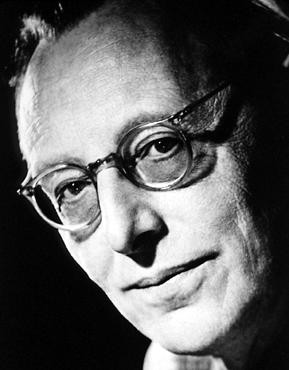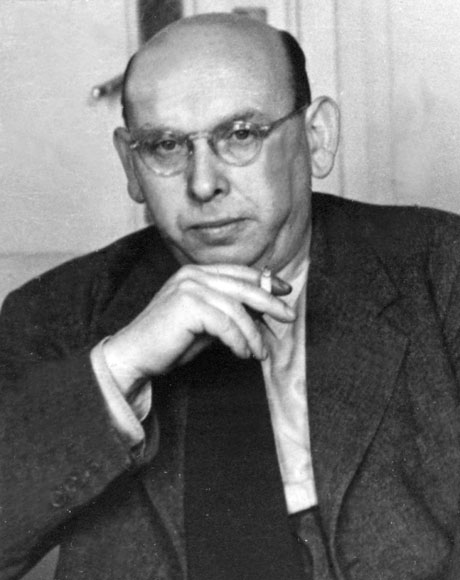
[ad_1]
Eisler and Orff, 2023
This Week in Classical Music: July 10, 2023. Hanns Eisler and Carl Orff. Carl Orff was born on this present day in 1895. Hanns Eisler’s anniversary was three days in the past, he was born in 1898.  Final week we promised to put in writing about these two composers: shut contemporaries, they lived via the dreadful 12 years of Nazi rule. It’s fascinating how in a different way their lives turned out. In a method, a few of it was inevitable, given the antisemitism of the Nazi ideology: Eisler’s father was Jewish whereas Orff was a Bavarian whose father was an officer within the German Imperial Military. Nonetheless, many private decisions result in their very totally different paths. (Whereas that is the primary time we’re writing about Hanns Eisler, we posted an in depth entry on Orff 4 years in the past, you’ll be able to learn it right here). Each Orff and Eisler served throughout the Nice Battle, each have been wounded (Orff severely, barely surviving). After the warfare, Orff moved to Munich, whereas Eisler returned to Vienna the place he grew to become Arnold Schoenberg’s scholar; 5 years later Eisler moved again to Germany and settled in Berlin. The cities, Berlin and Munich, have been musical facilities of Germany, although Berlin on the time was an epicenter of experimentation, whereas Munich’s musical institution was extra conservative.
Final week we promised to put in writing about these two composers: shut contemporaries, they lived via the dreadful 12 years of Nazi rule. It’s fascinating how in a different way their lives turned out. In a method, a few of it was inevitable, given the antisemitism of the Nazi ideology: Eisler’s father was Jewish whereas Orff was a Bavarian whose father was an officer within the German Imperial Military. Nonetheless, many private decisions result in their very totally different paths. (Whereas that is the primary time we’re writing about Hanns Eisler, we posted an in depth entry on Orff 4 years in the past, you’ll be able to learn it right here). Each Orff and Eisler served throughout the Nice Battle, each have been wounded (Orff severely, barely surviving). After the warfare, Orff moved to Munich, whereas Eisler returned to Vienna the place he grew to become Arnold Schoenberg’s scholar; 5 years later Eisler moved again to Germany and settled in Berlin. The cities, Berlin and Munich, have been musical facilities of Germany, although Berlin on the time was an epicenter of experimentation, whereas Munich’s musical institution was extra conservative.  Throughout the early years of the Weimar Republic, Orff and Eisler have been adventuresome composers, although Eisler extra so: he was the primary of Schoenberg’s college students to put in writing music within the 12-tone music, whereas Orff was extra impressed by Stravinsky. Each have been profoundly influenced by the playwright and Marxist firebrand Bertolt Brecht, once more Eisler extra so than Orff – he maintained a relationship with Brech for the remainder of his life, in Germany, then within the US, and later within the GDR.
Throughout the early years of the Weimar Republic, Orff and Eisler have been adventuresome composers, although Eisler extra so: he was the primary of Schoenberg’s college students to put in writing music within the 12-tone music, whereas Orff was extra impressed by Stravinsky. Each have been profoundly influenced by the playwright and Marxist firebrand Bertolt Brecht, once more Eisler extra so than Orff – he maintained a relationship with Brech for the remainder of his life, in Germany, then within the US, and later within the GDR.
Within the mid-Nineteen Twenties their paths began to diverge: Orff received excited about musical training and within the music of early Italian opera composers, particularly Monteverdi. Eisler within the meantime was turning increasingly political. Right here’s one of many songs from Eisler’s cycle Zeitungsausschnitt or Newspaper Clippings. It’s referred to as Kriegslied eines Kindes (Battle Track of a Youngster). The soprano Anna Prohaska is accompanied by Eric Schneider. And right here’s one other fantastic music from the identical cycle, Mariechen. This quick “clipping” is carried out by Irmgard Arnold (soprano) and Andre Asriel (piano). Additionally throughout these final years of the Weimer, Eisler wrote music to a number of of Brecht’s performs. Someday round 1931, Eisler composed a then-famous (or in our opinion, notorious) music Solidaritätslied (Track of Solidarity) for the German Communist Occasion with the lyrics by Brecht. For all we all know, with little or no change within the lyrics it might’ve been a Nazi march, however as is, it was tremendously well-liked with the German Left earlier than the Nazis took over. Right here it’s; Hannes Wader, a well-liked West German singer and a member of the German Communist Occasion, performs it to an appreciative viewers someday round 1977.
Issues modified dramatically with the Nazi’s rise to energy in 1933. Orff felt fairly comfy with the brand new regime, regardless that he by no means joined the Nazi social gathering. In 1937 he composed his most well-known work, Carmina Burana, a cantata primarily based on the German Latin-language poems from the 11th-Twelfth centuries. It grew to become highly regarded in Germany and, after some hesitation, was embraced by the Nazi regime. It’s not clear why would the Nazi ideologues accepted this piece and its reasonably salty lyrics, however they did. However so did many liberal opponents of the regime, clearly there was no “fascist message” within the music itself. Sadly, Orff compromised himself on different events. For instance, when the Nazis determined that Mendelssohn’s music to Midsummer Evening’s Dream was now not acceptable, due to its Jewish provenance, he answered their name and agreed to put in writing a substitute. Right here’s a scene from Ein Sommernachtstraum referred to as Mondaufgang (Moonrise). The Academy of the Munich Radio Orchestra is carried out by Christian von Gehren. Our feeling is that have been it carried out extra extensively nowadays it might grow to be highly regarded (as is, its story makes it a reasonably politically incorrect piece).
Eisler’s life after 1933 couldn’t have been extra totally different. We’ll proceed with it subsequent week.
[ad_2]